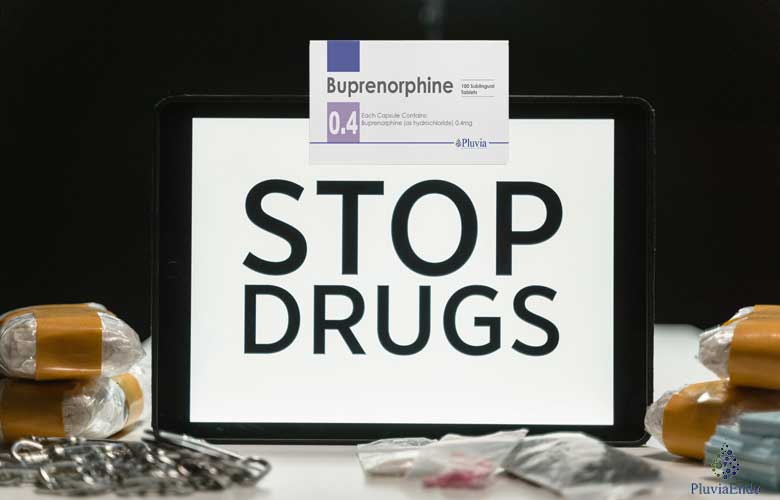Opioid addiction has become a national crisis, leaving a trail of devastation in its wake. Millions of Americans struggle with this debilitating condition, facing health problems, severed relationships, and lost opportunities. The journey towards recovery can feel overwhelming, but there is a powerful tool available: buprenorphine therapy.
This blog post delves into the world of buprenorphine therapy, offering a beacon of hope for those battling opioid addiction. We’ll explore:
The Grip of Opioid Addiction: Understanding the nature of the beast.
Buprenorphine: A Friend, Not a Foe: Demystifying the medication and its mechanism of action.
Benefits of Buprenorphine Therapy: Regaining control and reclaiming your life.
Buprenorphine Therapy: Beyond the Medication: Integrating it into a comprehensive treatment plan.
Finding Help and Taking the First Step: Resources and support systems for recovery.
The Grip of Opioid Addiction
Opioid addiction is far more than a personal choice. It’s a complex medical condition that hijacks the brain’s reward system. In addition, Opioids, including prescription pain medications and illegal drugs like heroin, bind to opioid receptors in the brain, triggering feelings of intense pleasure and euphoria. This creates a powerful reinforcement cycle, where continued use is driven by the desire to recapture those positive feelings.
Over time, the brain adapts to the presence of opioids, requiring higher doses to achieve the same level of pleasure. This phenomenon, known as tolerance, fuels the addiction cycle. Additionally, the brain downregulates its natural production of feel-good chemicals like dopamine, making it increasingly difficult to experience happiness and motivation without relying on the drug.
When someone attempts to stop using opioids, they experience a cascade of withdrawal symptoms. These can include:
Muscle aches and cramps
Restlessness and insomnia
Nausea and vomiting
Anxiety and depression
Chills and sweating
The intensity of these symptoms varies from person to person, but they can be incredibly distressing and serve as a major barrier to quitting.
Buprenorphine Therapy: A Friend, Not a Foe
Buprenorphine emerges as a critical tool in the fight against opioid addiction. It’s a medication that partially activates the same opioid receptors in the brain as other opioids but to a lesser degree. This partial activation provides several key benefits:
Reduces Cravings and Withdrawal Symptoms: By partially occupying the opioid receptors, buprenorphine reduces the intense cravings that fuel the addiction cycle. It also helps alleviate withdrawal symptoms, making the process of quitting less daunting.
Blocks the Effects of Full Opioids: Buprenorphine has a “ceiling effect,” meaning there’s a limit to the level of activation it can produce. This prevents users from experiencing the intense euphoria associated with full opioid agonists like heroin.
Lower Risk of Overdose: Compared to full opioid agonists, buprenorphine has a lower risk of overdose. This is because it cannot fully suppress a person’s respiratory system, a common cause of death in opioid overdoses.
Safe and Effective for Long-Term Use
Buprenorphine is a safe and effective medication for the long-term treatment of OUD. Also, it allows individuals to maintain stability and build a life free from constant preoccupation with drug use.
However, it’s important to understand that buprenorphine is not a cure for opioid addiction. It’s a powerful tool that works best with a comprehensive treatment plan.
Benefits of Buprenorphine Therapy
Buprenorphine therapy offers a multitude of benefits for those struggling with opioid addiction. In addition, it goes beyond simply managing withdrawal symptoms, paving the way for a more fulfilling life:
Improved Quality of Life: By reducing cravings and withdrawal symptoms, PluviaEndo‘s buprenorphine helps individuals regain control of their lives. They experience increased energy, improved mood, and a renewed sense of focus.
Enhanced Physical and Mental Health: Opioid addiction can take a toll on physical and mental health. Buprenorphine therapy can help individuals stabilize their health and manage existing conditions more effectively.
Increased Productivity at Work and School: individuals can return to work or school with renewed focus and motivation improved mental clarity and reduced drug preoccupation.
Strengthened Relationships: Addiction can damage relationships with loved ones. Buprenorphine therapy can help individuals rebuild trust and repair fractured relationships.
Reduced Risk of Relapse: Buprenorphine helps maintain stability, reducing the risk of relapse and allowing individuals to focus on long-term recovery.
Buprenorphine Therapy: Beyond the Medication
Integrating Buprenorphine Therapy into a Comprehensive Treatment Plan
While buprenorphine is a powerful tool, it’s not a standalone solution. Here’s how it integrates with a holistic treatment plan for optimal recovery:
Behavioral Therapy: This type of therapy along with Buprenorphine Therapy helps individuals identify and address the underlying causes of their addiction, develop coping mechanisms for cravings and triggers, and learn relapse prevention strategies. Cognitive-behavioral therapy (CBT) is a commonly used approach in this context.
Support Groups: Connecting with others who understand the challenges of addiction can be a source of invaluable support and encouragement. Support groups provide a safe space to share experiences, learn from others, and receive encouragement throughout the recovery journey.
Life Skills Training: Addiction can disrupt important life skills like budgeting, communication, and healthy relationship management. Life skills training helps individuals rebuild these skills and develop a strong foundation for a sustainable recovery.
Vocational Rehabilitation: For some individuals, addiction may have impacted their ability to maintain employment. Vocational rehabilitation programs offer support with job skills development, resume writing, and interview preparation, helping individuals re-enter the workforce.
Addressing Underlying Mental Health Conditions: Opioid addiction often co-occurs with mental health conditions like depression or anxiety. Addressing these co-occurring disorders alongside addiction treatment is crucial for a holistic recovery.






